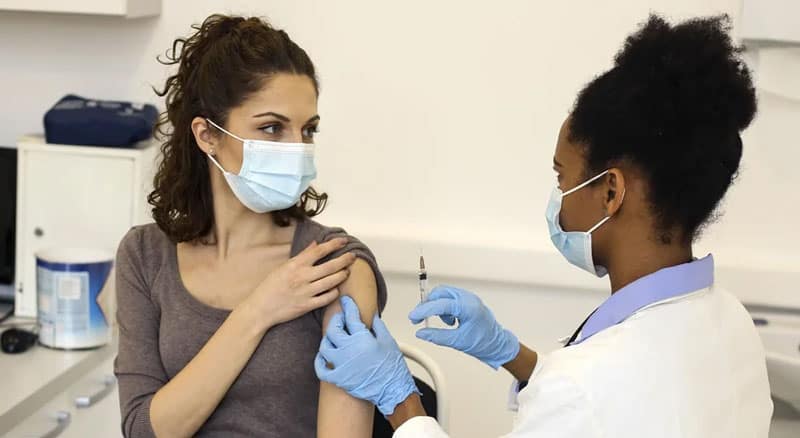A bombshell study from the U.S. Centers for Disease Control (CDC) and the Food and Drug Administration (FDA) has confirmed that the risk of autoimmune heart disease is 13,200% higher in people who are vaccinated for Covid.
The study found that the risk of myocarditis following mRNA Covid vaccination is around 133x greater than the background risk in the population.
The study was conducted by the CDC, FDA, and researchers from several top U.S. universities and hospitals.
Researchers examined the effects of vaccination with products manufactured by Pfizer-BioNTech and Moderna.
They found that Covid shots increase the risk of suffering myocarditis by 13,200%.
The study’s authors used data obtained from the CDC’s VAERS reporting system.
The data was then cross-checked to ensure the results complied with the CDC’s definition of myocarditis.
The researchers also noted that given the passive nature of the VAERS system, the number of reported incidents is likely to be an underestimate of the extent of the phenomenon.
1626 cases of myocarditis were studied.
The results showed that the Pfizer-BioNTech product was most associated with higher risk.
The Pfizer jabs caused 105.9 cases per million doses after the second vaccine shot in the 16 to 17 age group for males.
In the 12 to 15 age group for males, 70.7 cases per million doses were recorded after the second shot.
The 18 to 24 male age group also saw significantly higher rates of myocarditis for both Pfizer’s (52.4 cases per million) and Moderna’s (56.3 cases per million) products.
The study found that the median time to symptom onset was just two days.
Researchers also noted that 82 percent of cases were in males, consistent with previous studies.
Around 96 percent of affected people were hospitalized, with most treated with nonsteroidal anti-inflammatory drugs.
87 percent of those hospitalized had resolution of symptoms by the time of discharge.
At the time of data review, two reports of death in people younger than 30 years of age with potential myocarditis still remained under investigation and were not included in the case counts.
Among the reported symptoms were:
- chest pain, pressure, or discomfort (89%)
- shortness of breath (30%)
- abnormal ECG results (72%)
- abnormal cardiac MRI findings (72%).
The study’s authors noted that myocarditis following vaccination appeared to resolve more swiftly than in typical viral cases.
However, given that vaccination is no longer considered a reliable way in which to avoid infection from the Fauci Virus, it is unclear whether this has any specific relevance to the cost-benefit analysis of Covid vaccination.
This was especially relevant considering the low risk of complications following Covid infection for the age group most at risk for heart-related complications following the shots.
Given the plethora of studies confirming a link between vaccination and myocarditis, the CDC has commenced active surveillance of adolescents and young adults to monitor their progress following heart-related incidents after vaccination.
Long-term outcome data are not yet available, however.
In the meantime, the American Heart Association and the American College of Cardiology advise that people with myocarditis should refrain from competitive sports for three to six months.
Sufferers should only resume strenuous exercise after normal ECG and other test results are obtained, the groups warn.
In addition, they advise that further mRNA vaccine doses should be deferred.
In conclusion, the study’s authors note that the risk of myocarditis after receiving mRNA-based COVID-19 vaccines was increased across multiple age and sex strata.
The risk was highest after the second vaccination dose in adolescent males and young men.
The researchers warn that this risk should be considered in the context of the benefits of COVID-19 vaccination.
READ MORE: Fully Vaxxed Lose 25 Years of Life Expectancy, Study Shows

Our comment section is restricted to members of the Slay News community only.
To join, create a free account HERE.
If you are already a member, log in HERE.
Recommended